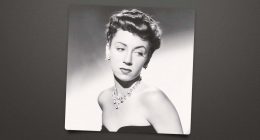
“There’s no version of myself that makes sense for the world,” Max (Chanté Adams) says in Amazon’s A League of Their Own, and it’s plain to see why: She’s a Black woman in a country run by white men, a queer person still figuring out her own identity, a baseball phenom barred from the all-female league on account of her race and shunned by the integrated local team on account of her gender.
But she’s confiding this to Carson (Abbi Jacobson, who also co-created the series with Will Graham), another queer baseball player who’s never quite fit in either. They get each other, even if not everyone else does. A League of Their Own aims to construct a world where women like Max and Carson can feel like they “make sense” — or better yet, like they don’t have to try to make sense to anyone but themselves. And though its efforts get off to a fumbling start, they ultimately expand and deepen the legacy of the 1992 film that inspired it while retaining its big, warm heart.
A League of Their Own
The Bottom Line A hit, if not a home run.
As with the movie, Amazon’s series chronicles the early days of the Rockford Peaches, one of four teams launched as part of the brand-new All-American Girls Professional Baseball League (AAGPBL) in 1943 while male athletes headed off to World War II. The main narrative beats remain intact too: Carson replaces Geena Davis’ Dottie as the small-town catcher who joins the Peaches while her husband (Patrick J. Adams’ Charlie) is off at war, and eventually steps up as the team’s leader when the male pro assigned to coach them (Nick Offerman’s Dove) fails to take their talents and ambitions seriously. The Peaches once again battle disrespectful fans, impractical uniforms and even a devastating last-minute trade right on cue, and smaller nods to the source material are sprinkled throughout as well. Of course someone yells “There’s no crying in baseball!” at one point.
Upon that familiar foundation, however, A League of Their Own works to build something new — often by spotlighting histories sidelined or ignored by its predecessor. Whereas the movie only acknowledged Black woman ballplayers through a single throw by an unnamed extra, the series spins an expansive storyline about Max’s struggle to get on a team, which plays out concurrently with the Peaches’ journey. While the film relegated LGBTQ themes and characters to subtext, the series goes all in on Carson’s passionate affair with flirty teammate Greta (a beguiling D’Arcy Carden) or Max’s halting exploration of a life beyond the conventional heterosexual marriages she sees around her. Woven through them all is a celebration of the simple joy of belonging, whether it’s found in the lifelong friendship between Max and her BFF Clance (Gbemisola Ikumelo, very winning) or the bond that forms between the Peaches over the course of their season.
But it takes a while for A League of Their Own to establish its intentions, let alone figure out how to execute them. Initially, the series — much like the Peaches themselves in their inaugural season — seems defined more by stubborn determination than by actual success. A scene in the premiere (directed by Jamie Babbit) of Carson running to catch the train with her bra accidentally exposed sets her up as an awkward millennial heroine a la Jacobson’s own earlier work in Broad City, which sits oddly in a midcentury setting. Indeed, the show at times seems to have not much interest in being a period piece at all: The dialogue is unmistakably modern (“If we lose, let it be fucking epic!” goes one pep talk) and the soundtrack stuffed with hits from much later in the century, by the likes of Janis Joplin and Nina Simone.
The bifurcated structure, which has both Max and Carson leading storylines that intersect only occasionally, does prove surprisingly effective — in their similarities or contrasts, each half of the story manages to enhance the other without eclipsing it. But it also allows little room for supporting characters to come into their own for most of the season. A few, like Greta’s boisterous bestie Jo (Melanie Field), fade into the background after a strong start; others, like tough, gruff Lupe (Roberta Colindrez), only start to open up in the last few installments.
But if A League of Their Own is a slow burn to start, it is one that largely pays off by the end. The halfhearted comedy of the first half (manifested mainly through Carson’s tendency to ramble incoherently when she’s nervous) gives way to richer, deeper emotions in the second as Carson, Max, Greta and others allow themselves to more fully explore who they really are and what they really want. The vague relationships between the characters crystallize into true, tangible chemistry. Even some of the weaknesses start to look, in certain indulgent lights, like strengths. Its anachronisms arguably shorten the distance between the 2020s and the 1940s, and undercooked storylines like Clance’s interest in making comic books could set up narrative arcs for future seasons.
At its very best, A League of Their Own succeeds handsomely on its own terms, no excuses or references to the source material necessary. The series’ purpose and perspective come through most clearly in the poignant sixth chapter, which follows Carson and Max as they (separately) enter explicitly queer spaces for the first time in their lives. “How is any of this possible? How is this allowed?” Carson marvels to the bartender, Vi (Rosie O’Donnell). The response she gets is candid: “It’s really not.” But the fact that Vi is standing there with her wife, slinging drinks to an LGBTQ clientele, is itself an insistent reminder that such communities exist and have always existed — regardless of whether they’ve been legal, and regardless of whether history books (or, for that matter, beloved sports dramas from the 1990s) might bother to include them.
The sense of homecoming the characters find in A League of Their Own feels like a gift, and one made even more precious by the characters’ — and the series’ — intense awareness of its rarity and fragility. “I feel like I’m supposed to be here, you know? I don’t know if I’ve ever felt that way before,” Carson confesses in the second episode to her roommate, Shirley (Kate Berlant). She’s talking about the fact that they get to play their first pro ball game the next day. But A League of Their Own‘s goal is to extend that sense of rightness to all its characters, for all the qualities that make them feel like messes or misfits. It doesn’t always hit it out of the park. But its hearty swings are worth a cheer of their own.
Source: Hollywood








